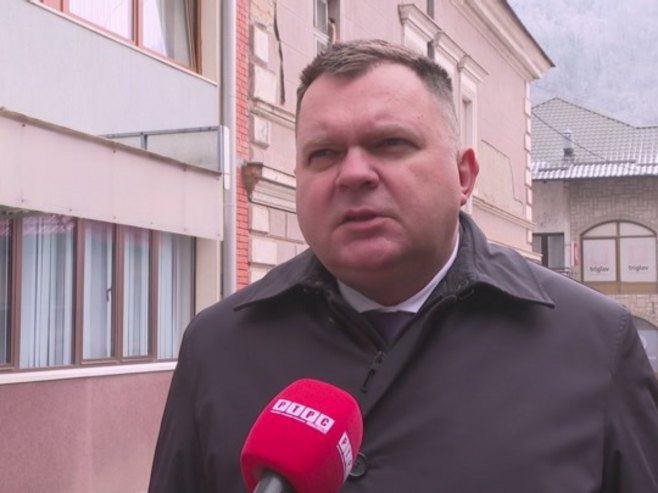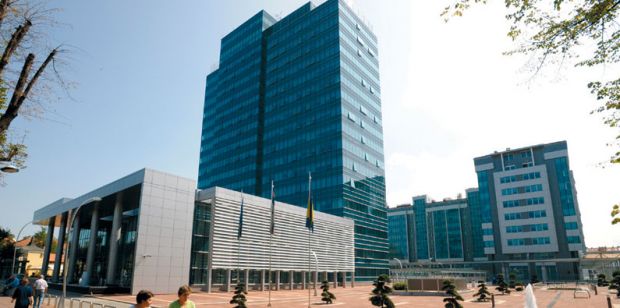Republika Srpska remains committed to advancing Bosnia and Herzegovina’s European path while preserving its constitutional order. However, significant obstacles on this path are the despotic presence of the OHR and the control foreign judges exert over the Constitutional Court, as stated in Republika Srpska’s 32nd report to the UN Security Council.
The report notes that these obstacles slow down the European process, but Republika Srpska believes that their removal will enable Bosnia and Herzegovina to steadily progress towards EU membership.
“Republika Srpska is firmly committed to implementing reforms necessary for Bosnia and Herzegovina’s integration into the EU, while preserving Bosnia and Herzegovina’s constitutional structure. For years, it has diligently worked towards European integration, achieving considerable progress on the objectives outlined by the EU in its reports on Bosnia and Herzegovina. To date, thousands of Republika Srpska’s regulations have undergone alignment procedures and compliance assessments with EU law,” the report states.
The document notes that Bosnia and Herzegovina’s multinational leadership, with Republika Srpska’s support, achieved rapid progress towards EU integration in 2023 and early 2024, a fact recognized by the European Council in March 2024, which approved the start of Bosnia and Herzegovina’s EU membership negotiations.
“Unfortunately, this progress was halted less than a week later when Christian Schmidt imposed extensive amendments to Bosnia and Herzegovina’s Electoral Law, discarding the democratic constitutional system for enacting laws. This caused a political crisis, paralyzing progress on European integration, which worsened when the Bosniak-controlled Ministry of Foreign Affairs of Bosnia and Herzegovina acted unconstitutionally without the Presidency’s authorization, aiming to pass a highly controversial resolution on the Srebrenica war crime at the UN General Assembly,” the report explains.
The report highlights that the largest Bosniak party, SDA, blocked the Reform Program through its cantonal premiers, stalling EU integration and costing Bosnia and Herzegovina 70 million euros in EU growth plan aid for the Western Balkans.
Despite the political crisis, progress has been made in recent months, including the Council of Ministers’ adoption of the Anti-Corruption Strategy in June, one of the 14 key priorities for European integration. Bosnia and Herzegovina, with Republika Srpska’s support, recently initiated legislation to introduce the “112” emergency number.
“Republika Srpska hopes that Bosnia and Herzegovina’s leaders will again come together to renew rapid progress towards EU membership. Republika Srpska, in fact, supports the implementation of all remaining elements of the 14 key priorities set by the European Commission for Bosnia and Herzegovina’s EU integration. Unfortunately, Bosniak parties refuse this proposal as one key priority involves replacing foreign judges in Bosnia and Herzegovina’s Constitutional Court with citizens of Bosnia and Herzegovina,” the document states.
The report emphasizes that the OHR must close for Bosnia and Herzegovina to achieve full sovereignty and democratic self-governance, which are necessary for progress towards EU membership.
“The EU has made it clear that the OHR’s presence is inconsistent with Bosnia and Herzegovina’s European path. Schmidt’s unlawful decrees, dictatorial powers, reckless interventions, and mere presence create crises, seriously undermining and obstructing Bosnia and Herzegovina’s EU integration,” the report stresses.
The document notes that the EU considers the continued operation of the OHR, with its self-proclaimed right to govern Bosnia and Herzegovina by decree, incompatible with Bosnia and Herzegovina’s EU integration.
“The European Commission, in its 2019 opinion on Bosnia and Herzegovina’s membership application, states that such intense international oversight is inherently incompatible with Bosnia and Herzegovina’s sovereignty and, consequently, with EU membership,” the report adds.
The Government of Republika Srpska notes that, since 2019, the OHR’s despotism over Bosnia and Herzegovina has become more extreme, illustrated by Schmidt’s at least 21 unlawful decisions since his arrival, including a decree establishing prison sentences for those who refuse to recognize his orders as legitimate laws.
The Government of Republika Srpska recalls that this German politician continues to unlawfully claim the title of High Representative, although his appointment was not approved by the UN Security Council as required by the Dayton Agreement.
“Worse, without any legal basis and contrary to Bosnia and Herzegovina’s Constitution, Schmidt continues to claim power and exercises it to govern Bosnia and Herzegovina through decisions, disregarding any boundaries on his authority by either domestic or international institutions. Schmidt’s unlawful and dictatorial rule violates the human rights of Bosnia and Herzegovina’s citizens, tramples on the rule of law, and destabilizes the country,” the report specifies.
The report also states that Annex 10 of the Dayton Agreement, the sole source of the High Representative’s legal authority, outlines roles such as monitoring, maintaining close contacts with the parties, assisting, attending donor meetings, reporting, and providing guidance to the International Police Task Force Commissioner.
“Nothing in Annex 10 can be interpreted in good faith as granting the High Representative the right to make decisions binding on Bosnia and Herzegovina or its citizens. Any interpretation of this annex suggesting the right to govern Bosnia and Herzegovina by decree represents a gross misinterpretation, violating the Vienna Convention on the Law of Treaties,” the report asserts.
The document adds that the Peace Implementation Council (PIC) has no legal authority, much less the right to grant new extensive powers to the High Representative. It notes that, for Bosnia and Herzegovina to be governed by the rule of law, the unlawful usurpation of the so-called “executive powers of the High Representative” created at the Bonn conference must finally be recognized as an illegal fabrication.
“Schmidt’s patently false claim to interpret the High Representative’s powers contrary to the clear text of the Dayton Agreement leaves two possibilities: either he is deliberately lying, or he has not even bothered to read the Dayton Agreement despite claiming to perform the role of High Representative. Either way, Schmidt embarrasses himself and his supporters in the international community,” the report states.
It also recalls Schmidt’s persecution of Republika Srpska’s president, Milorad Dodik, for adhering to the law, as well as Schmidt’s announcement in July 2023 of his most destabilizing and repressive decree, a “law” imposing prison sentences on public officials who refuse to consider his unlawful orders legitimate.
“In response to Schmidt’s unlawful and unconstitutional attempts to govern Bosnia and Herzegovina by decree, the National Assembly of Republika Srpska passed a law in June 2023 suspending the publication of such unlawful decisions in the Official Gazette of Republika Srpska,” the report states.
The report recalls that, when the President of Republika Srpska proclaimed the new law as required by Republika Srpska’s Constitution, the Prosecutor’s Office of Bosnia and Herzegovina, acting under Schmidt’s pressure, indicted Dodik based on Schmidt’s fictitious criminal law.
“The indictment represents a dangerous escalation of Schmidt’s attacks on Bosnia and Herzegovina’s constitutional order and is nothing short of an attempted coup against Republika Srpska’s democratically elected leadership, indicted under a fictitious law. Dodik is now undergoing a simulated court process overseen by a former Bosniak military judge from the wartime period,” the document recalls.
The report states that the continued presence of foreign judges in Bosnia and Herzegovina’s Constitutional Court is incompatible with Bosnia and Herzegovina’s sovereignty and democracy, undermines its legitimacy, and presents an obstacle to Bosnia and Herzegovina’s EU integration. The EU has identified replacing foreign judges as a key priority for opening EU accession negotiations.
“This is a fundamental requirement that must be met before beginning accession negotiations. However, Bosniak political parties in Bosnia and Herzegovina have refused to consider any law that would replace foreign judges, as these judges reliably vote alongside Bosniak judges in favor of unconstitutional expansions of state-level authority, weakening the entities. For the same reason, the U.S. Embassy in Sarajevo has distanced itself from the EU and opposed this long-overdue reform,” the report emphasizes.
The document notes that no sovereign country in the world has reserved seats for foreign judges on its constitutional court, let alone judges appointed by a foreign entity (the President of the European Court of Human Rights) without its consent.
Republika Srpska is confident that Bosnia and Herzegovina can meet the criteria for EU membership while preserving the fundamental constitutional order established by the Dayton Agreement—a structure that guarantees protection for the constituent peoples and significant autonomy for Bosnia and Herzegovina’s two entities, Republika Srpska and the Federation of Bosnia and Herzegovina.
“In its 2019 Opinion on Bosnia and Herzegovina’s EU membership application, the European Commission reaffirmed that Bosnia and Herzegovina’s decentralized structure is compatible with EU membership. In EU federal and decentralized states, territorial units carry vital competencies, including in areas requiring the transposition of EU directives,” the report adds.
The federal and consociational system of Bosnia and Herzegovina, as noted, is of critical importance for Europe’s security, given Bosnia and Herzegovina’s status as a haven for jihadists and the fact that the perpetrators of the most severe terrorist attacks in recent decades had significant connections to Bosnia and Herzegovina.
“In the latest terrorist attack in Bosnia and Herzegovina, a teenager recently broke into a police station in Bosanska Krupa in the Federation of Bosnia and Herzegovina, killed one police officer, and wounded another. Police arrested eight people in connection with the attack and seized weapons, money, computers, and numerous documents in Arabic. In June 2010, a police officer was killed and six others wounded in a bombing attack on a police station in Bugojno in the Federation. In April 2015
, an attacker killed one police officer and wounded two others in an attack on a police station in Zvornik in Republika Srpska,” the report recalls.
Although many Bosniaks practice a moderate form of Islam, the largest Bosniak political party in Bosnia and Herzegovina, SDA, has roots in extremist ideology. Its manifesto emphasizes that “the Islamic movement must and can approach taking power as soon as it is morally and numerically strong enough to not only overthrow the existing non-Islamic but also build a new Islamic authority.”
“Although this party strives to present itself to the West as moderate and democratic, it has never renounced its explicitly Islamist ideology, and its leadership maintains close ties with radical leaders of the Muslim Brotherhood and countries like Iran. Political Sarajevo’s affinity for radical ideology explains the lack of political will to rid Bosnia and Herzegovina of dangerous jihadist elements,” the report states.
The Government of Republika Srpska stresses that Bosnia and Herzegovina’s European integration should proceed in line with the Coordination Mechanism for the EU Integration Process in Bosnia and Herzegovina, agreed upon in 2016 at the highest technical and political level and supported by the EU.
“The coordination mechanism is based on the principles of respecting Bosnia and Herzegovina’s existing internal legal and political structure, protecting constitutionally defined competencies of all levels of government and their institutions in areas covered by the European integration process, ensuring visibility, and holding all levels of government accountable for the timely and effective fulfillment of their obligations under the European integration process within their jurisdiction,” the report adds.
Republika Srpska agrees with the European Commission that Bosnia and Herzegovina must ensure equality and non-discrimination for all citizens, including the implementation of the European Court of Human Rights decision in the ‘Sejdić and Finci’ case and related decisions, and has already offered adequate and simple solutions in this regard.
Source: RTRS









